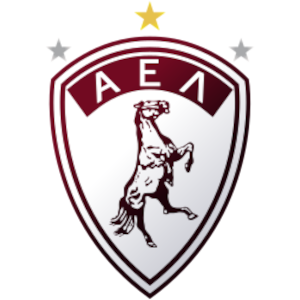Nuccio Ordine: Europe has lost its moral orientation

According to the Italian thinker, whose best-selling book "The Usefullness of the Uselless" (L'Utilita' dell' inutile) has been translated to many foreign languages (also in Greek), the pursue of the specialization in knowledge and apprendiceship, as a by-product of an educational system that points merely to the production of skillful personnel, impoverishes the imagination, the flexibility of thinking, and the perspicacity of decision-making--decisive factors not just for Humanities, but mostly to the work of science.
"Everything in our days is reduced to the question: to what could be useful? Even in the Media, the same question is transformed to "who may be interested?", argued professor Ordine, adding that "today, if someone is creating a cultural achievement, the main tendency is to charcterize it as 'useless', and the fact that we destroy the humanistic science is the reason we destroy the base of the Science itself".
"Today, both disciplines fight the same battle: to impede that specialization enters in sectors that should not enter. And which are those sectors that specialization should not enter? the schools, the universities; the latter cannot be treated as businesses, nor the students as clients of these businesses. The same stands for the public health: the doctors are transformed to bureaucrats, the patients to clients. The same concerns also the monuments", remarked the Italian thinker.
"The governments that claim that there are no money, they all tell lies. Today's crisis is first of all a moral crisis. In Italy the General Accounting Office informs us that each year we lose 70 billion due to the widespread corruption, more than the double because of the discal evasion. If we could educate morally the people to pay their dues, we could finance anything", added.
According to Ordine, “ the problem is not the crisis, the problem is that we create an egoistic society, where what counts the mostly is profit; but not a profit that contributes to the embettering the world", said the Italian professor, who linked this moral question with the loss of orientation Europe suffers today.
The actual problems of Greece could not escape from the perspicacious eye of Ordine, who correlated them with the general crisis in Europe: "The problem of Greece is not only Greek, it is a problem of whole Europe. Because Greece has the responsibility of having nurtured a corrupt political class, which destroyed the State. But today the policies imposed by Europe cannot drive Greece out of the difficult situation. Because if someone hands you only the money to pay the interests of your debt, how could you reignite your economy? It's a suicide."
In a reference to this situation in Greece, Ordine underlined that: "UE's policy as it is won’t help Grece to go out of crisis. Greece was forced to sell off the State's assets and suddenly arrived a German company who bought all the Greek airports f paying an infare price. There is a conflict of interest and nobody said it. It is a shame,” he said.
"The lecture of the classics, the music, the Arts, help us to overcome the culture of egoism, help me to understand that I'm part of a bigger Humanity and they help me to come out of my small world and embrace the Universal", argued professor Ordine. "So our task, especially during a period of crisis is to invest in culture and education of the youngers. We have to teach the younger generation the values of solidarity. I’m thinking, for example, the refugee's crisis. If we are not welcoming to them, the face of the humanity we build will have inhuman traits ,” he concluded.
Ordine is one of the leading expert in the Renaissance and the philosophy of Giordano Bruno, in 2013 he published “The usefulness of useless” which became a world success.
Sunanda Girolami/ George-Byron Davos
ΔΙΑΒΑΣΕ ΑΚΟΜΗ:
- Ο «Ζωντανός Νοστράδαμος» προβλέπει εμπλοκή του Ηνωμένου Βασιλείου στη σύγκρουση Ισραήλ–Ιράν και παγκόσμια πυρηνική κρίση
- Επέζησε από έκρηξη ηφαιστείου που σκότωσε 22 ανθρώπους: Η εμφάνιση της 5 χρόνια μετά... σοκάρει (vid)
- Προσομοίωση πυρηνικού πολέμου: Τι θα συνέβαινε στις πρώτες 100 ημέρες σε ενδεχόμενο Παγκόσμιο Πόλεμο (vid)




